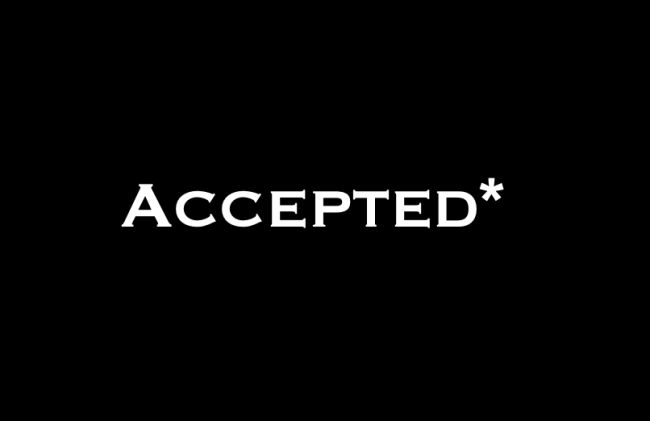You have /5 articles left.
Sign up for a free account or log in.

Inside Higher Ed
Nowhere in the world of corporate capitalism do underlings sit on the interview committees to hire their next boss. Logan Roy’s administrative assistant is not normally invited into the boardroom to help choose the next CEO in the world of HBO’s Succession. Mere mortals are not given a voice about whether Hawk Girl should be added to the team of superheroes that make up the Justice League—and perhaps rightly so.
Academe, in contrast, occasionally likes to indulge its democratic tendencies by adding a student to a search committee. Even as our joint experience serving on a recent search committee in Global Black Literatures leads us to applaud this tendency, we have a few concerns about the gap between the search committee’s expectations and institutional expectations—and how that gap impacts individuals’ experiences on the committee.
As a senior white faculty member, Russ Castronovo, and a third-year Black graduate student, Elijah Levine, we want to pause to examine how the inclusion of a single Black graduate student on a hiring committee can create undue expectations and false impressions for both candidates and interviewers alike. During our department’s search for a cluster hire of three positions in Global Black Literatures, we grappled especially with the distinct challenges that graduate student members confront when serving on a hiring committee.
Our committee, composed of five faculty members and a graduate student, was an earnest attempt at leveling, at least a little bit, the unevenness of institutional hierarchy. It also included tenured and untenured faculty, queer faculty, Asian American faculty and two white full professors. The meaning of such optical diversity on a search committee is something that we’re still trying to figure out.
We believe it is crucial to place an “underling” on the hiring committee of their potential supervisor. But the inclusion of a single subordinate does not miraculously make everyone at the table an equal. Indeed, this measure of due diligence might do just as much to obscure the power imbalance as it does to actually alleviate it. For the committee and candidates being considered, the presence of a single graduate student in the room gestures toward inclusive practice yet also highlights its shortcomings.
In the world of academe, the question “Do We Need a Student on the Search Committee?” as The Chronicle of Higher Education asked back in 2017, is now regularly perceived as a no-brainer. Of course, students should be included in decisions involving faculty hiring. What better way to demonstrate the “unmistakable symbolism” of “student involvement in the highest levels of institutional governance”?
But for our committee, the symbolism also conveyed a fraught message about some of the realities of diversity and inclusion. When the student member is the only Black member on a committee largely interviewing Black candidates about global Black literatures, the democratic ethos starts to look a bit more like what scholar Jodi Melamed calls “neoliberal multiculturalism” under which the simulation of feel-good moments of racial inclusion reinforce U.S. power on the global stage.
Both of us agreed that having a Black member on this committee helped frame the message that we wanted to send about the department and its climate to prospective candidates. (That climate remains part of a larger institutional ecosystem nationwide that is severely challenged to hire underrepresented faculty.) This gesture of inclusion might be seen as conferring a certain legitimacy on the search. But both of us, as the faculty member and the graduate student, also recognized that asking the person with the least amount of institutional security or privilege to perform this service was awkward at best. We talked about how, given the context, it was not only the candidates who were being interviewed.
Even as the faculty member, Russ could perceive that Elijah as the lone graduate student representative was not just a member of the search committee. Elijah was also being interviewed at every turn, perhaps silently evaluated for the questions he posed or judged for his knowledge of the field. But like the insight of many tenured professors, Russ’s perspective had its limits.
And Elijah, as the lone graduate student, quickly noticed the distinct position in which the search placed him. “How would this Black candidate feel,” he wondered during the early interviews when such a candidate appeared before the committee, “to see Zoom squares populated by all non-Black faculty if I were not in this room?” He felt at once indispensable and vulnerable. Elijah asked himself, “Am I here representing graduate students? Or Black graduate students? And what does it mean to attempt either?” Optics are tricky: being seen is great, but we rarely control the lens through which that occurs.
This quandary is not unique to academe. Nearly all industries that, nominally or otherwise, pursue measures of diversity and inclusion must grapple with the inevitability that those burdens will be unduly placed on underrepresented colleagues. Elijah, whose graduate research work focuses on new ways of thinking about Blackness that scrutinize and reject quick fixes for the problems of underrepresentation and exclusion, felt some unease over the role he was playing.
He was a single graduate student representing at once the university, the English department, all graduate students in the program, the subset of students of color and a different subset of Black graduate students. He was wary how his position implicated other Black graduate students in the work of the committee. Would they have even wanted a seat at this table? Getting such a seat often doesn’t mean that one has a legitimate voice at the table due to asymmetrical issues of power and hierarchy. This predicament also affects marginalized faculty members who are subjected to microaggressions and worse when they take on the often thankless task of participating in the hiring process.
At this table during our search process, every comment from the rest of the committee was reflected off an anxious and paranoid house of mirrors. Or so it seemed to Elijah—while Russ had the luxury simply to inhabit a role he had been playing for the past two decades. For Elijah, the line between reassurance and consolation was blurred beyond recognition. “Surely they wouldn’t tell me my question was bad.” Of course, this doubt had nothing to do with the actual feelings and impressions of the committee members. Their genuine support became a salve for the worries posed by this unavoidable institutional dynamic, one that is surely replicated at colleges and universities across the country.
But professional and personal performance were required to make it all seem natural. Acting naturally, of course, takes a lot of effort. And when the performance of professionalism is freighted with the persistent reminder that this graduate student would in turn be a job candidate in a search like this one, the opportunity to serve on a hiring committee starts to appear like a harrowing harbinger of things to come.
Faced with this conundrum, we decided we wanted to leverage a sole graduate student voice on the search committee into a lasting service to the larger graduate student community—not just a temporary moment of representation. Our initial ideas entail plans for a candid forum in which other graduate students can ask Elijah questions about his experience on the inside of hiring deliberations.
Where else might we hit pause in the coming months to demystify the search process so that students can see not just how cover letters and CVs are written but how they are evaluated, discussed and forwarded (or not) to the next round of deliberations? Our key concern is that continued efforts to reflect on the aims of the search and the complex issues it seeks to address are not limited to the five-month period of the search itself. Our task is to make the process of putting a graduate student on the inside less of a one-time event during those increasingly rare instances when a department is authorized to run a search. And if representation—of lack thereof—is really the issue, what is prohibiting placing more graduate students representing diversity on a search committee?
These efforts represent a conscientious way of thinking about the problems associated with allowing a single graduate student to serve on a search committee. Other first steps would surely entail providing a stipend to recognize the expenditure of graduate student time and labor as well as ensuring that this time and labor advances graduate students’ own career paths. We plan to start taking such steps and encourage people at other institutions to do so, as well, while recognizing that fulfilling these promises won’t be easy in the academy—which, in the end, may not be as far removed from corporate culture as we’d like.




